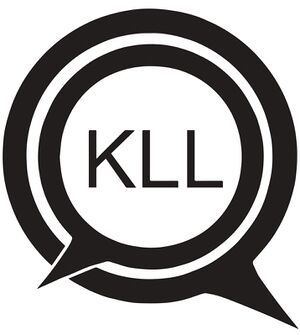Organised Editing/Activities/Kathmandu Living Labs
Kathmandu Living Labs (KLL)
About KLL
| Kathmandu Living Labs (KLL) is a not-for-profit civic technology company based in Kathmandu, Nepal that works to bring data, technology, and people together. In addition to building open geo-spatial information infrastructure around OpenStreetMap in Nepal, KLL also works in emergency preparedness, large-scale mobile data collection, governance, citizen engagement, and academic research. More information about KLL can be found in the official website.
KLL harnesses the local knowledge, develops open data, and promotes civic technologies. At Kathmandu Living Labs, we attempt to connect technologies to difficult problems people face in their everyday lives. Through the years of experience, we have learned that technology is only a part of the puzzle in creating technology-based solutions. Successful implementation of technology-solution requires choreography of bringing together a number of elements forming an ecosystem. Our emphasis at Kathmandu Living Labs is cutting-edge Web 2.0 and crowd-sourced mapping that empower and engage citizens in working with government and development agencies to address problems collectively.
|
History
KLL was started in 2013 by former team members of Open Cities Kathmandu project. The project collected structural data of 2,256 schools and 350 health facilities, and worked to create a comprehensive basemap of the valley by mapping building, roads and other features in OpenStreetMap in order to build seismic resilience in Kathmandu valley.
Activities Overview
| SN | Title | Organizer | Start | End | Purpose | Local Patners | Wiki Link | Hastag | Tools |
|---|---|---|---|---|---|---|---|---|---|
| 1 | Mapping Transport Networks for Accessibility in Khyber Pakhtunkhwa, Pakistan | Kathmandu LivingLabs | July 1, 2021 | September 15,2021 | Create missing transport data – principally road networks – in focus areas of interest (AOIs) | N/A | Organised Editing/Activities/Mapping Kayber Pakistan | #kll #esapv #worldbank #kll_mapping_road_in_pakistan | HOT Tasking Manager, JOSM, JOSM Validator |
| 2 | Mapping Transport Networks for Accessibility in Bhutan | Kathmandu LivingLabs | 14 February, 2021 | ongoing | Create missing transport data – principally road and path networks – in focus areas of interest (AOIs) | N/A | Organised Editing/Activities/Bhutan mapping | #kll #esapv #worldbank #kll_mapping_road_in_bhutan | HOT Tasking Manager, JOSM, JOSM Validator |
| 3 | Building Footprint for Urban Agglomerations in Afghanistan | Kathmandu Living Labs | 25 November, 2020 | 15 February, 2021 |
|
N/A | Organised Editing/Activities/Afghanistan Mapping | #kll #worldbank #afghanistan #ARTF #kllinafghanistan2020 #kllworldbank | HOT Tasking Manager, JOSM, JOSM Validator |
| 4 | Secondary Cities Pokhara | Kthmandu Living Labs | 2016 | 2018 | The 2C Pokhara project focused on the development of disaster resilience and emergency management in the city of Pokhara. Kathmandu Living Labs helped local partners and communities within the city of Pokhara to create robust OpenStreetMap (OSM) data of their city and develop a community that is better able to update, maintain and make effective use of the collected data. In the long run, the 2C Pokhara project envisioned the formation of geographic information sensitized community that is able to use the collected OSM data to mobilize strategically, create applications, and use tools such as Quakemap.org in the advent of a major disaster | Pashchimanchal Campus, Nepal Red Cross Society Kaski, Nepl Scout Kaski, Nepal Army, GESAN | Secondary Cities Pokhara | #2cPokhara #KLL | JOSM, Field papers, Maps.me, mapillary, OSMTracker |
| 5 | Secondary Cities Indore | Kathmandu Living Labs | 2018 | 2019 | Secondary Cities (2C) is a field-based initiative of the Office of the Geographer at the US Department of State to map for resiliency, human security, and emergency preparedness. Partnerships are built up to create geospatial capacity, enhance understanding through data and mapping, and enable science-based decision making.
The City of Indore covers an area of 275 square km and has an estimated population of 2.8 million people (2017 estimate). It is a rapidly growing city and is the most densely inhabited city in the State of Madhya Pradesh (10,000 people/square km). Over the past decade, Indore has emerged as the business and education capital of the state. The rapid urban development has led to increased pressure on public utilities, including healthcare. Based on our conversations with the local and state governments, local people, NGOs, and universities it is clear that Indore faces tough challenges in managing its large population, and ensuring access to municipal services across the city. There is a pressing need to make updated spatial data available in the public domain and to assist the local government in measuring healthcare outreach to poorer sections of the society. |
Acropolis Group of Institutions | Kathmandu Living Labs/Secondary Cities Indore | #2Cindore | JOSM, Field papers, Maps.me, mapillary, OSMTracker |
Data Team
Following are the full time mappers at KLL. We hire mappers on need basis.
| Name | OSM Username |
|---|---|
| Manoj Thapa | https://www.openstreetmap.org/user/Manoj%20Thapa |
| Roshan Paudel | https://www.openstreetmap.org/user/Ro%20Sun |
| Rabin Ojha | https://www.openstreetmap.org/user/Rabin%20Ojha |
| Sushma Ghimire | SushmaGhimire |
